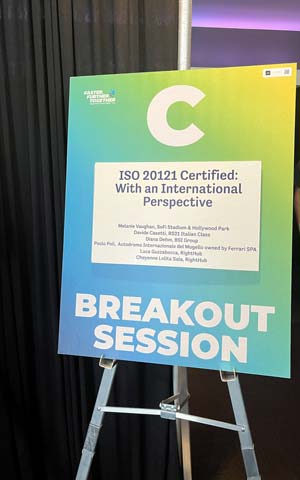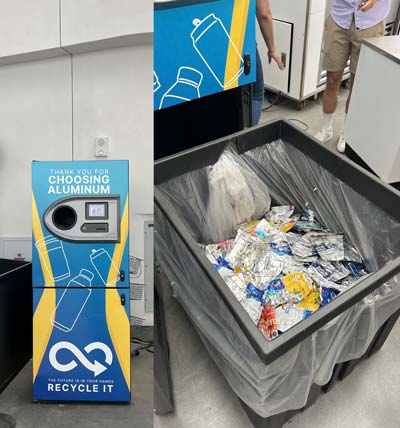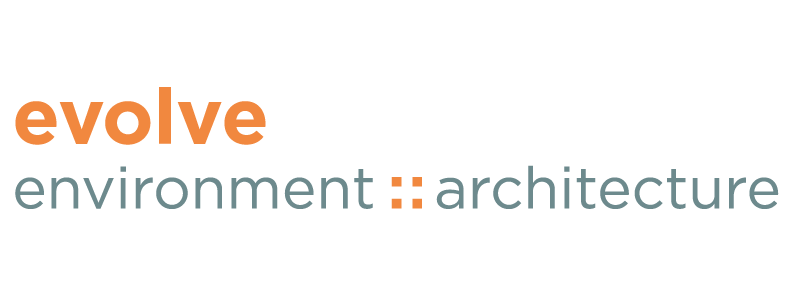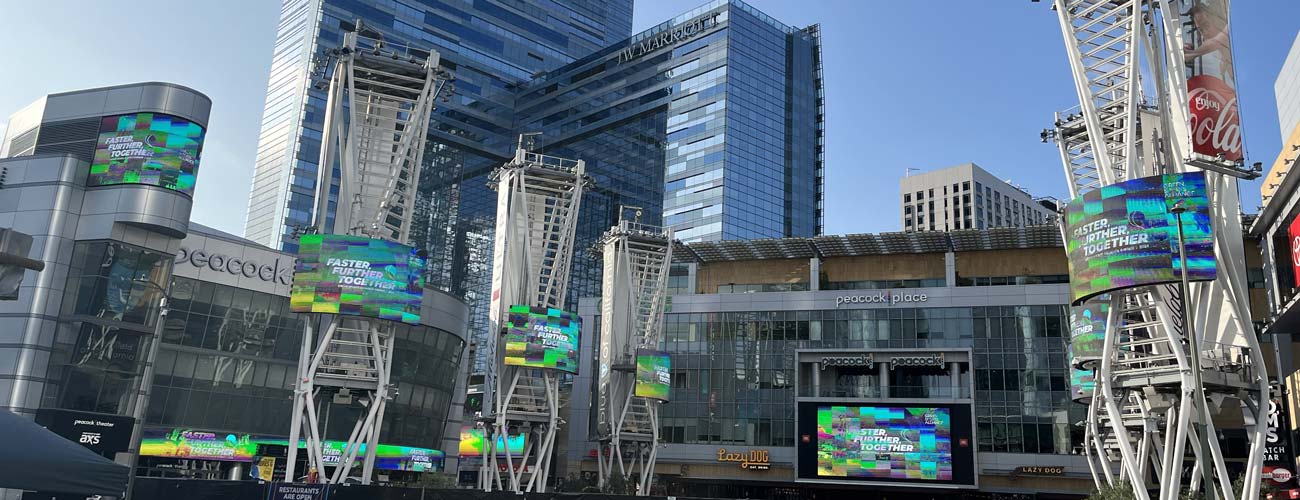Faster, Further, Together: The Green Sports Alliance Summit
In 2011, the first Green Sports Alliance (GSA) Summit drew a modest crowd of 100 attendees; a core group dedicated to advancing sustainability within sports and entertainment. Fast forward to 2024, where this year the GSA summit in Los Angeles saw attendance swell to 800. The gathering united major American sports leagues—PGA, MLB, NBA, WNBA, NHL, and NASCAR—alongside renowned event organizers such as Goldenvoice and AEG Presents (most known for Coachella), executives from “the big 3” music industry giants Sony, Universal, and Warner, and operations leaders from some of the nation’s largest venues and sports teams. All shared a singular goal: to explore how the sports and entertainment industries can flourish while acting responsibly within the communities they impact.
Key themes and insights from GSA 2024
“Faster, Further, Together”
Under the theme “Faster, Further, Together,” the summit underscored the urgency of accelerating progress towards global sustainability targets, and the critical roles of innovation, collaboration, and forward-thinking leadership in shaping sustainable practices across diverse sporting and entertainment landscapes. “No need to reinvent the wheel” was a common recurring statement at nearly every panel discussion. From stadiums to stages across states and countries, drivers of sustainability strategies may differ whether on stage, on court, or in the field, stemming both from grassroots demands for better environmental stewardship and top-down mandates from big name artists, leagues, and global governance bodies. While each context is unique, the solutions to meet sustainability commitments often can be found by learning from those who are already finding success. The Green Sports Alliance announced it would be launching a member portal this Fall 2024 to accelerate the sharing of knowledge and adoption of sustainable strategies across the industry. Knowledge-sharing is key to going “faster, further, together.”
SoFi Stadium: Playing in the Big Leagues
 Touring SoFi Stadium was a major highlight of the Summit this year. A state-of-the-art super stadium with a 70,000-seat capacity expandable to 100,000, SoFi Stadium is home to two NFL teams, the Los Angeles Chargers and the Los Angeles Rams, and has also been the host venue for Super Bowl LVI in 2022 and the College Football Playoff title game in 2023. Today, SoFi is gearing up to host the FIFA World Cup 2026 and the opening and closing ceremonies of the 2028 Olympics made possible by the implementation of ISO 20121 certification in sustainable event management, a requirement of the International Olympic Committee and many international-scale events. (Other noteworthy stadiums in L.A.: Los Angeles Memorial Coliseum winning Zero Waste awards and Crypto.com arena working towards Play to Zero targets)
Touring SoFi Stadium was a major highlight of the Summit this year. A state-of-the-art super stadium with a 70,000-seat capacity expandable to 100,000, SoFi Stadium is home to two NFL teams, the Los Angeles Chargers and the Los Angeles Rams, and has also been the host venue for Super Bowl LVI in 2022 and the College Football Playoff title game in 2023. Today, SoFi is gearing up to host the FIFA World Cup 2026 and the opening and closing ceremonies of the 2028 Olympics made possible by the implementation of ISO 20121 certification in sustainable event management, a requirement of the International Olympic Committee and many international-scale events. (Other noteworthy stadiums in L.A.: Los Angeles Memorial Coliseum winning Zero Waste awards and Crypto.com arena working towards Play to Zero targets)
ISO 20121 Sustainable Event Management System
 It’s not just the size and stature of a venue that make it worthy of hosting international-scale events, but a commitment to sustainability backed by the ability to credibly report on sustainability performance matters now more than ever. At the core of SoFi Stadium’s sustainability strategy lies the ISO 20121 Sustainable Event Management System, an internationally recognized standard that provides a step-by-step approach to managing events with a focus on environmental, social, and economic well-being. Born out of the International Olympic Organising Committee’s push for a sustainable London 2012 Olympics, ISO 20121 has become a requirement for every Olympic Games since. The framework covers all aspects of sustainability throughout the event lifecycle, from initial planning to post-event analysis and reporting. Venues, event managers, teams, suppliers, and organizers alike use the standard as a playbook for integrating sustainability into every facet of event planning and execution. The certification process, renewed every three years, ensures that venues like SoFi continually maintain and improve their sustainability practices, establishing readiness for the next big event. Those aiming to align their event with global sustainable event management standards should take note of ISO 20121, which introduced a new update in April 2024.
It’s not just the size and stature of a venue that make it worthy of hosting international-scale events, but a commitment to sustainability backed by the ability to credibly report on sustainability performance matters now more than ever. At the core of SoFi Stadium’s sustainability strategy lies the ISO 20121 Sustainable Event Management System, an internationally recognized standard that provides a step-by-step approach to managing events with a focus on environmental, social, and economic well-being. Born out of the International Olympic Organising Committee’s push for a sustainable London 2012 Olympics, ISO 20121 has become a requirement for every Olympic Games since. The framework covers all aspects of sustainability throughout the event lifecycle, from initial planning to post-event analysis and reporting. Venues, event managers, teams, suppliers, and organizers alike use the standard as a playbook for integrating sustainability into every facet of event planning and execution. The certification process, renewed every three years, ensures that venues like SoFi continually maintain and improve their sustainability practices, establishing readiness for the next big event. Those aiming to align their event with global sustainable event management standards should take note of ISO 20121, which introduced a new update in April 2024.
Reuse, Reuse, Reuse
A major focus of SoFi Stadium’s and other venues’ sustainability efforts is waste management and the push for zero waste events. As we have seen in our work performing waste audits for the Pittsburgh Steelers at Heinz Field and venues like the David L Lawrence Convention Center, venues often struggle with vast amounts of waste from events, a pressing issue for cities everywhere, but especially in places where landfills are nearing capacity. To guide the industry toward best practices, the Green Sports Alliance launched their new Reuse Playbook outlining how venues have embraced zero waste and reuse practices, reducing the amount of single-use products, and leaning into principles of circularity. Venues are adopting reusable serviceware, making the “return rate” a critical success metric to monitor. Sports and entertainment events provide an excellent opportunity to showcase reuse systems like r.World to a broad audience and shift the cultural mindset towards normalizing reuse. SoFi Stadium approaches its waste reduction program in the following ways:
- Mitigating Recycling Stream Contamination: Fans are asked to keep waste in their seats. Trained stadium operations staff, called “runners,” collect and pre-sort waste using a dual-bag system where one team collects recyclables in blue bags and another collects landfill waste in black bags, streamlining quality control for sorting and recycling processes. Efficient processes like these enable the stadium to turn the facility over in 24 hours for back-to-back events.
 Reverse Vending Machines: Automatic recycling machines located near food and beverage areas help facilitate aluminum can recycling. Fans insert their empty cans, and the machine flattens them for recycling. However, usage of these machines has not been perfected due to contamination issues when fans insert non-recyclables. New technology has improved on the concept and functionality of reverse vending machines like the ones at SoFi, with upgrades requiring the user to scan the barcode of an item before being able to toss it in the recycling container. If the item is not recyclable, the machine stays shut. We might expect to see more of these high-tech recycling solutions in more places in the near future.
Reverse Vending Machines: Automatic recycling machines located near food and beverage areas help facilitate aluminum can recycling. Fans insert their empty cans, and the machine flattens them for recycling. However, usage of these machines has not been perfected due to contamination issues when fans insert non-recyclables. New technology has improved on the concept and functionality of reverse vending machines like the ones at SoFi, with upgrades requiring the user to scan the barcode of an item before being able to toss it in the recycling container. If the item is not recyclable, the machine stays shut. We might expect to see more of these high-tech recycling solutions in more places in the near future.- Organic Digesters: SoFi Stadium manages kitchen food waste through a dedicated composting program, where biodegradable waste is sorted and separated on-site. OrCa digesters further process several tons of organic waste from food and beverage preparation areas, converting it into liquid form to divert it from landfills. Limitation: the resulting liquid byproduct is typically disposed of down the drain and does not have a second life. While this approach avoids methane emissions and contributes to waste reduction, composting is an arguably better solution for its ability to support landscaping on site or elsewhere.
Travel Emissions
Travel is often the largest environmental impact area of pro sports leagues. The leading German hockey league (DEL), consisting of 16 teams, has taken a pioneering step by implementing a comprehensive Environmental, Social, and Governance (ESG) program of its own. One of the most impactful rules mandates that teams travel to games by train whenever possible, significantly reducing carbon emissions associated with air travel. Trains emit far less CO2 per passenger mile/kilometer when compared to airplanes, making them a more sustainable mode of transport. By prioritizing train travel, DEL not only reduces its carbon footprint but also sets a powerful example of how sports organizations can take climate action. While the geography and infrastructure in the US presents challenges for this type of policy, teams could prioritize train travel for shorter distances, advocating for improved rail systems, or can explore other options like electric buses. Collaboration between leagues, transportation providers, and environmental organizations can lead to innovative solutions.
The Power of Contracts
With increased scrutiny on sustainability performance, articulating and incorporating clear sustainability goals into contract terms and conditions has become a powerful and crucial mechanism for holding partners accountable and ensuring their active participation in achieving sustainability objectives. Orchestrating a sustainable event requires a concerted team effort, relying on vendors, suppliers, trained staff, sponsors, commercial partners and fan engagement to be successful. By embedding sustainability requirements into contracts, organizations can create a binding commitment for all stakeholders to adhere to specific environmental criteria. This approach guarantees that suppliers, service providers, and other partners are equally invested in the sustainability agenda. Artists like Jack Johnson and Billie Eilish are known for including sustainability requirements in their concert riders, setting a precedent for environmentally responsible practices in the entertainment industry. Their actions illustrate how influential figures can drive change through their contractual agreements, promoting sustainability and encouraging others to follow suit.
Texas A&M Athletics First-Ever Sustainability Master Plan
 Texas A&M has set a new standard by becoming the first collegiate athletics department in the country to develop a comprehensive sustainability master plan specifically focused on its sports programs and associated environmental footprint. This initiative builds upon Texas A&M’s 2018 Campus Sustainability Master Plan and is structured around 12 key themes that outline a long-term vision for sustainability: Zero Waste, Waste Minimization, Built Environment and Site Design, Energy Use and Greenhouse Gas Emissions, Mobility and Transportation, Community Engagement, Student Success, Health and Wellness, Voice and Influence, Education, Outreach, and Engagement, Administrative Support, Instruction and Innovation.
Texas A&M has set a new standard by becoming the first collegiate athletics department in the country to develop a comprehensive sustainability master plan specifically focused on its sports programs and associated environmental footprint. This initiative builds upon Texas A&M’s 2018 Campus Sustainability Master Plan and is structured around 12 key themes that outline a long-term vision for sustainability: Zero Waste, Waste Minimization, Built Environment and Site Design, Energy Use and Greenhouse Gas Emissions, Mobility and Transportation, Community Engagement, Student Success, Health and Wellness, Voice and Influence, Education, Outreach, and Engagement, Administrative Support, Instruction and Innovation.
Collective Action
With the launch of the Music Industry Climate Collective, the big three record labels (Sony, Universal, and Warner) have banded together to address global climate challenges within the music industry. The founding members of the collective emphasized the importance of unified action in amplifying environmental stewardship, offering tailored sustainability strategies for music companies of all sizes to reduce the industry’s carbon footprint. The current challenge is with adopting sector-specific guidance for measuring scope 3 greenhouse gas emissions, which account for most of the industry’s emissions and include indirect emissions from product manufacturing, distribution, and licensing.
Whether you’re managing athletic departments, leagues, or teams, working as part of facilities and operations staff, or simply enjoying the events from the stands, the sports and entertainment industry is evolving rapidly. Each major event now presents an opportunity to showcase sustainable solutions that leave a positive and lasting legacy behind. On display at the GSA 2024 were some of the ways this transformation is happening.


